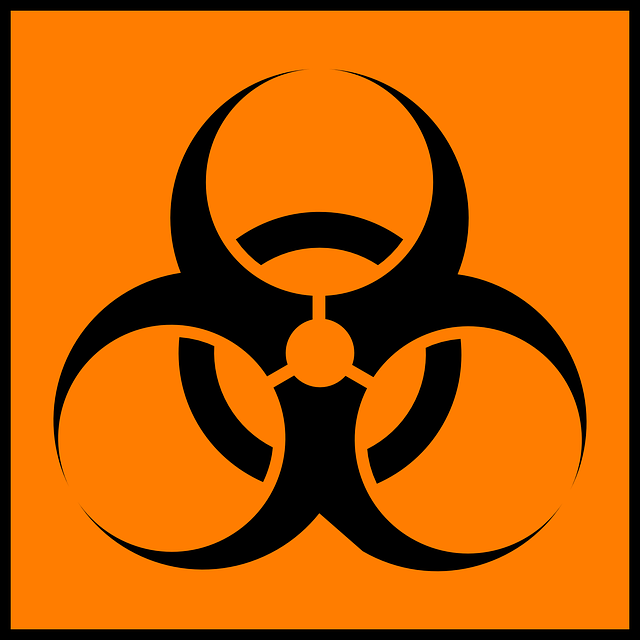Securing Accurate and Compliant Medical Record Translations in the UK Healthcare System
The UK's healthcare system relies on precise and compliant Medical Record Translation UK services to effectively communicate between patients, healthcare providers, and legal entities, especially with its diverse population. These translations a…….

The UK's healthcare system relies on precise and compliant Medical Record Translation UK services to effectively communicate between patients, healthcare providers, and legal entities, especially with its diverse population. These translations are crucial for cross-border healthcare services and must uphold patient confidentiality while adhering to stringent data protection laws like GDPR and the UK Data Protection Act 2018. Specialized translators with expertise in both medical and legal terminologies ensure content integrity across languages, maintaining the trustworthiness of medical records and supporting informed decision-making and effective treatment plans. Medical Record Translation UK services are integral to this process, offering legally admissible and medically accurate documents that align with regulatory standards, thereby safeguarding patient well-being and privacy. These services emphasize ethical and professional guidelines, ensuring that all translated medical records are compliant, secure, and reliable for the needs of healthcare providers and patients alike.
In the UK’s multicultural landscape, secure translations of medical records are paramount for both legal integrity and patient care excellence. This article delves into the critical aspects of medical record translation within the UK healthcare system, emphasising the stringent accuracy and compliance required to navigate this sensitive field effectively. We explore the best practices that ensure data privacy and security, making the process a cornerstone of legal and healthcare protocols. With a focus on Medical Record Translation UK services, this piece offers an indispensable guide to maintaining patient-centric, ethical standards in document translation.
- Navigating the Complexities of Secure Medical Record Translation in the UK
- The Role of Accuracy and Compliance in Translating Medical Documents Legally
- Ensuring Data Privacy and Security During Medical Record Translations in the UK Healthcare System
- Best Practices for Medical Record Translation Services in the UK: Legal, Ethical, and Patient-Centric Approaches
Navigating the Complexities of Secure Medical Record Translation in the UK

In the United Kingdom, the secure translation of medical records is a critical aspect of healthcare that bridges communication between patients and healthcare providers, as well as facilitates legal proceedings. With a diverse population and an increasing need for cross-border healthcare services, the demand for accurate translations of medical documents has never been greater. Medical Record Translation UK services must adhere to stringent data protection regulations, such as the General Data Protection Regulation (GDPR), ensuring that sensitive patient information remains confidential during the translation process. These translations are not merely a matter of linguistic accuracy but also require a deep understanding of medical terminology and legal jargon to maintain the integrity of the content across different languages. Specialized translators, often with expertise in both law and medicine, are essential to navigate the complexities inherent in Medical Record Translation UK, guaranteeing that healthcare providers, legal professionals, and patients can rely on the translated records for informed decision-making and effective treatment plans. The stakes are high; any oversight or mistranslation could lead to misdiagnosis, incorrect treatment, or legal complications, emphasizing the necessity for precision and reliability in Medical Record Translation UK services. As such, these services not only comply with legal standards but also uphold ethical and professional obligations to protect patient welfare and privacy.
The Role of Accuracy and Compliance in Translating Medical Documents Legally

When translating medical records for legal and healthcare purposes, the stakes are high due to the sensitive nature of the information and its implications on patient care and legal outcomes. Accuracy in translation is paramount, as a single error could lead to misdiagnosis, incorrect treatment plans, or even legal repercussions. The Role of Accuracy and Compliance in Translating Medical Documents Legally underscores the need for translators who are not only proficient in the source and target languages but also well-versed in medical terminology and the nuances of healthcare practices. In the UK, where the National Health Service (NHS) handles vast amounts of patient data, the translation of medical records is governed by strict regulations such as the General Data Protection Regulation (GDPR) and the NHS’s own Information Governance (IG) policy. Compliance with these standards is essential to protect patient confidentiality and ensure that the translated documents accurately reflect the original medical records, thus maintaining the integrity of patient care across different linguistic communities within the UK. Medical Record Translation UK services must, therefore, employ translators who are adept at navigating the complexities of both language and law to provide translations that are both legally admissible and medically accurate. This commitment to precision and compliance is critical for safeguarding patient rights and facilitating effective communication between healthcare providers and patients from diverse linguistic backgrounds.
Ensuring Data Privacy and Security During Medical Record Translations in the UK Healthcare System

In the UK healthcare system, the translation of medical records is a critical process that requires stringent data privacy and security measures to safeguard patient confidentiality and comply with legal standards. Medical Record Translation UK services must adhere to the General Data Protection Regulation (GDPR) and the UK’s Data Protection Act 2018, ensuring that personal data is processed lawfully, fairly, and transparently. The translation of sensitive medical information necessitates not only linguistic accuracy but also the utmost discretion and security to protect against unauthorized access or breaches. Translation agencies specializing in Medical Record Translation UK must employ certified translators with expertise in healthcare terminology, who are bound by professional secrecy and understand the importance of maintaining patient anonymity throughout the translation process. The implementation of secure communication channels and encryption technologies further bolsters the protection of medical data during translation, aligning with the National Health Service (NHS) information governance standards to ensure the integrity and availability of health records for legal and healthcare purposes.
The UK’s commitment to maintaining high standards of data privacy and security in medical record translations is underscored by the continuous investment in secure translation technologies and the regular training of professionals in privacy and cybersecurity best practices. Medical Record Translation UK services are integral to the effective functioning of multidisciplinary healthcare teams, facilitating informed decision-making and continuity of care for patients who require treatment across different regions or countries. By leveraging advanced technology and adhering to strict compliance protocols, these translation services play a pivotal role in bridging language barriers while upholding the trust and confidentiality expected by patients and healthcare providers alike.
Best Practices for Medical Record Translation Services in the UK: Legal, Ethical, and Patient-Centric Approaches

In the UK, the translation of medical records for legal and healthcare purposes necessitates a robust framework that upholds legal standards, ethical principles, and patient confidentiality. Medical Record Translation UK services must adhere to stringent guidelines set forth by the General Data Protection Regulation (GDPR) and the UK’s Data Protection Act 2018 to ensure the privacy and security of patients’ sensitive information. The translators involved in this process should be proficient not only in the source and target languages but also in medical terminology specific to the UK’s healthcare system. This expertise is crucial for accurate translations that convey the precise meaning and intent of the original records, which are critical for patient care, legal proceedings, and compliance with healthcare regulations.
Furthermore, Medical Record Translation UK services must be patient-centric, ensuring that translation practices respect the patient’s rights and dignity. This includes employing professional translators who are native speakers of the target language to avoid cultural misunderstandings and idiomatic errors. The use of certified translation agencies that specialise in medical documentation can provide additional assurance that translations meet both legal and healthcare standards. These agencies often employ a two-step process where translations are first rendered into the target language by a professional linguist, followed by a second review by another specialist with expertise in UK law or medicine to ensure the translation is legally sound and medically accurate. This dual verification process underscores the commitment to quality and reliability in Medical Record Translation UK services.
In the UK, the secure translation of medical records is a critical intersection of legal compliance, data privacy, and patient care. This article has delineated the complexities involved in this process, emphasizing the importance of accuracy and adherence to legal standards. It has highlighted the necessity for stringent data security measures and outlined best practices that prioritize both ethical considerations and patient-centric approaches within the UK healthcare system. Medical Record Translation UK services are pivotal in facilitating clear communication across linguistic barriers, ensuring the integrity of health information is maintained. By adhering to these guidelines, practitioners can provide a high standard of care that respects the privacy and legal rights of patients, thereby enhancing the quality and accessibility of healthcare for all individuals within the UK.






